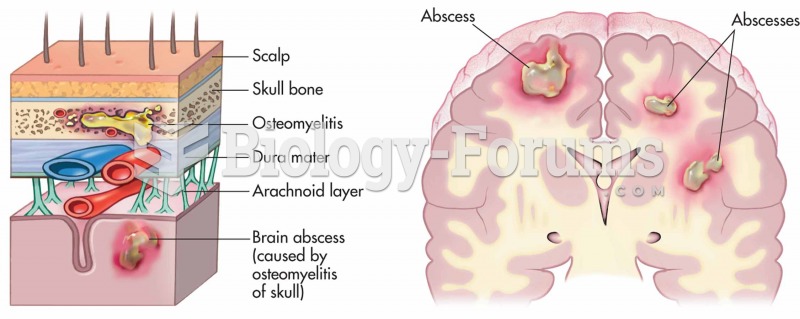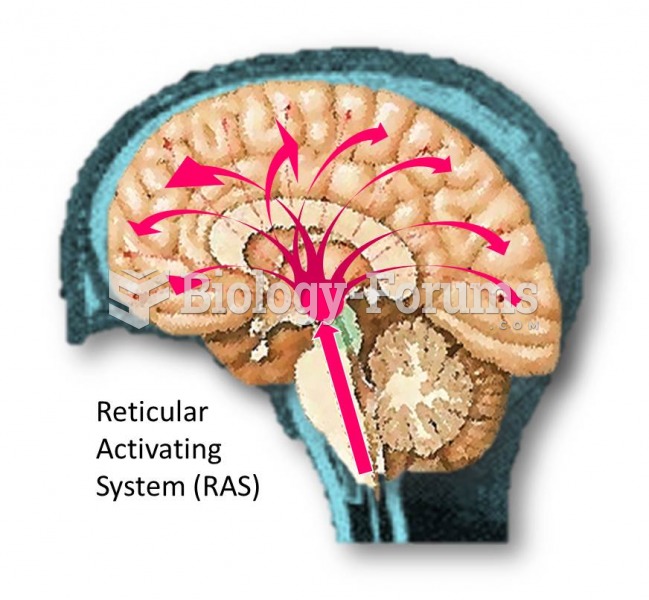|
|
|
When Gabriel Fahrenheit invented the first mercury thermometer, he called "zero degrees" the lowest temperature he was able to attain with a mixture of ice and salt. For the upper point of his scale, he used 96°, which he measured as normal human body temperature (we know it to be 98.6° today because of more accurate thermometers).
Green tea is able to stop the scent of garlic or onion from causing bad breath.
Inotropic therapy does not have a role in the treatment of most heart failure patients. These drugs can make patients feel and function better but usually do not lengthen the predicted length of their lives.
Approximately 500,000 babies are born each year in the United States to teenage mothers.
The first oral chemotherapy drug for colon cancer was approved by FDA in 2001.







